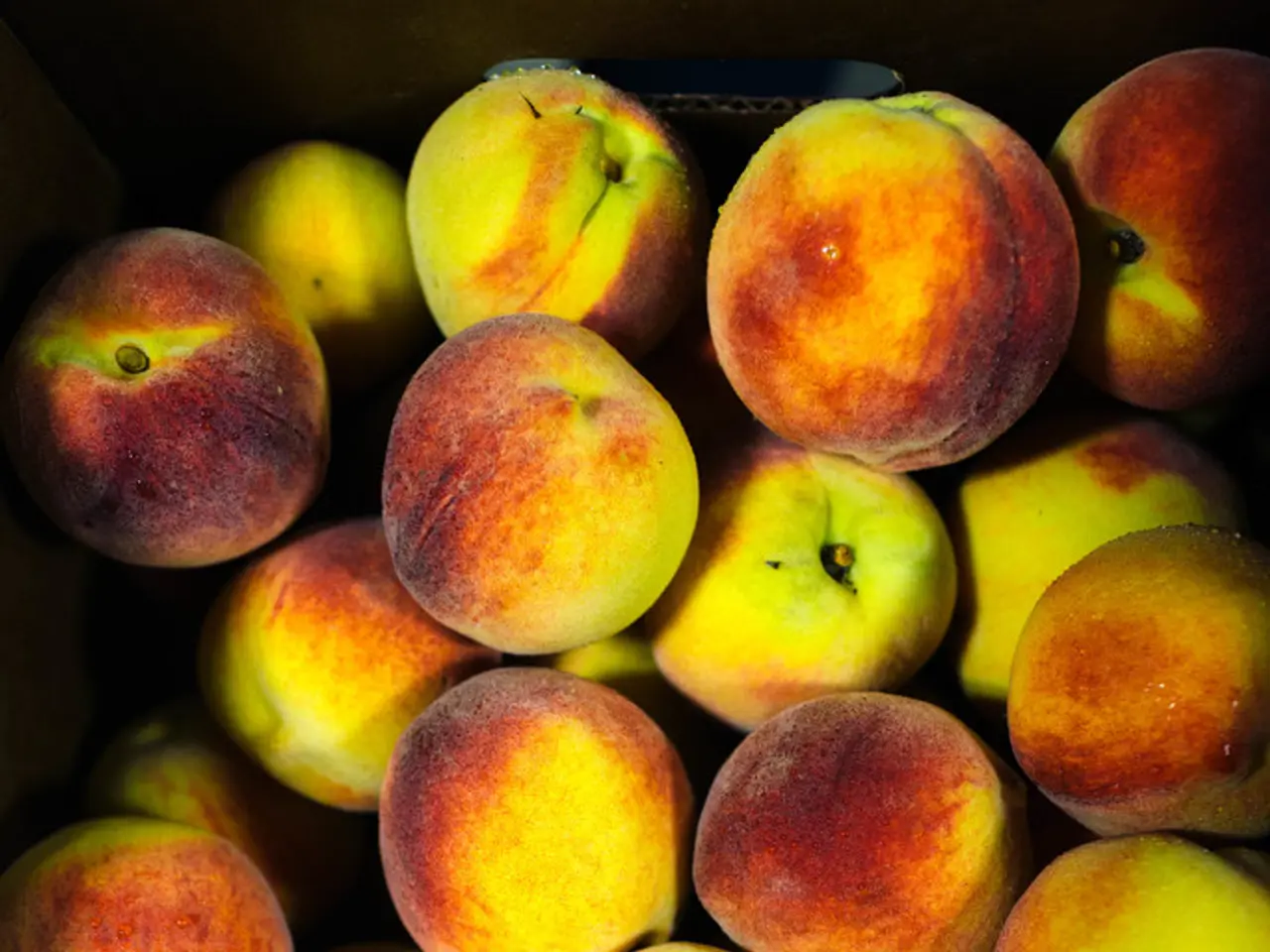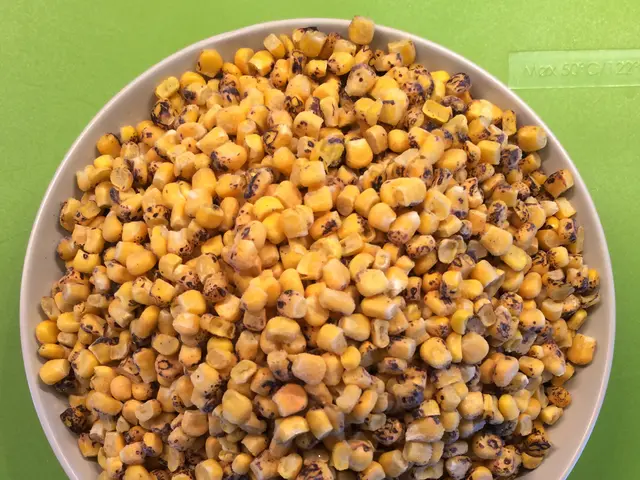Nestle reveals a new strategy to augment cocoa production amidst changing climate conditions
In the world of chocolate, the rising costs of cocoa have been a significant concern in recent times. The prices soared in early 2023, reaching over £9,000 per tonne on the London commodities market, due to poor harvests in Ivory Coast and Ghana, caused by unusually heavy rains, a cocoa pod disease outbreak, and drought.
However, the surge in prices dampened demand and pushed farmers to devote more resources to cocoa cultivation. Recognising the challenges faced by cocoa farmers due to climate change, companies like Nestle are taking innovative steps to help.
Louise Barrett, the head of Nestle's research and development center for confectionery in York, England, spearheads one such initiative. Nestle has developed a patented technique that utilises all parts of the cocoa pod, previously largely unused.
The technique involves collecting a wet mass from inside the cocoa pod, which naturally ferments, unlocking key chocolate flavours. The fermented mass is then ground, roasted, and dried into chocolate flakes, maintaining taste quality. This approach reduces waste and helps farmers increase yield and value.
Nestle's innovation could potentially address the issue of increasing cocoa prices by increasing yield and reducing waste. The project is currently at a pilot stage, with plans to scale it up in the future.
The Climate Central research group's findings suggest that climate change may continue to negatively impact cocoa harvests. Over the last decade, climate change has added an extra three weeks of above 32C during the main growing season in Ivory Coast and Ghana, which is above the optimum level for cacao trees.
In February 2023, a study by the Climate Central research group found that excessive heat can negatively impact cocoa harvests. The innovation being explored by Nestle aims to help cocoa farmers maximise harvests amidst increasing climate change effects on cocoa yields.
While prices eased in recent months, with reserves being built up for the first time in four years, the recent price decline may be temporary. The ongoing challenges posed by climate change to cocoa production could keep prices volatile in the future.
As of the beginning of 2025, the price of a tonne of cocoa was around £5,600, a significant drop from the highs of 2023. However, the long-term effects of climate change on cocoa production remain a concern for the industry.
In a world where climate change continues to pose threats to cocoa production, innovative solutions like Nestle's could prove crucial in ensuring a sustainable future for chocolate lovers everywhere.
Read also:
- Susanne Otto to Develop Additional Housing Units
- Deepwater Port Construction Permits for Projects within the South Central Region's Air Regulations
- Citizen Thekla Walker, Minister, urges: "Let's face our responsibilities at home"
- Editorial Correspondence: Justifying the Elimination of a Program Earmarked for Reducing Our Own Carbon Footprint?








